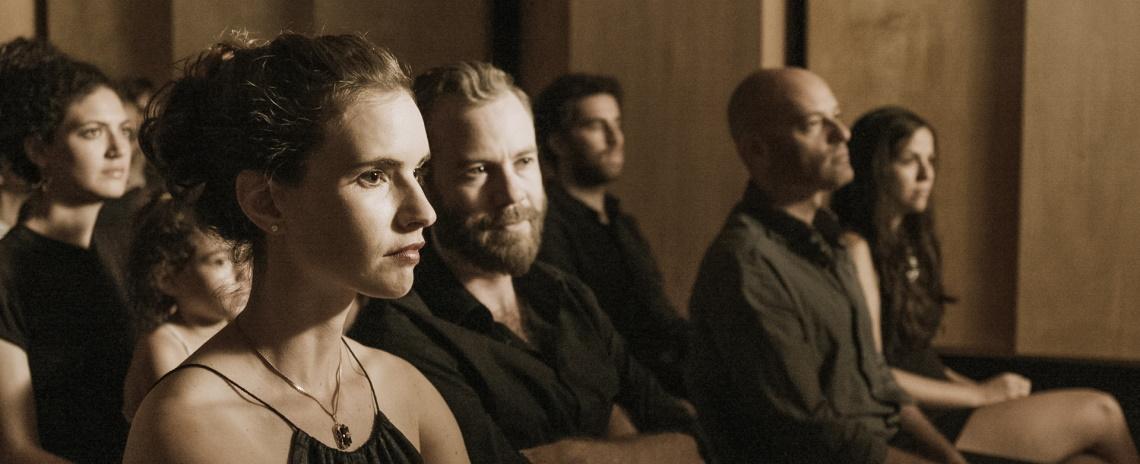Throughout the 29th Annual Whitaker St. Louis International Film Festival (SLIFF), the writers at the Lens will be spotlighting their favorite narrative and documentary films on this year's festival slate. Our critics will discuss can't-miss festival highlights, foreign gems that have already made an international splash, and smaller cinematic treasures that might have otherwise been overlooked – just in time for you to snap up your virtual tickets.
Numerous films have been made about the snarled intersection of musical genius and parental expectations, but Israeli writer-director Itay Tal’s potent debut feature, God of the Piano, takes this theme to new, nail-biting heights. Most viewers can scarcely imagine the colossal creative and professional pressures at play in elite-level classical piano, but one of the traits that distinguishes Tal’s film is how quickly and clearly he conveys the horror-film absurdity of what performers put themselves through in the name of excellence. To wit: In the film’s first scene, the focused and very pregnant Anat (Naama Preis) doesn’t miss a note during a performance, even when her water breaks and runs down her leg, pooling on the stage underneath her feet. It’s a vivid sign of what Anat is willing to endure to win the approval of her impossible-to-please father, an esteemed composer and instructor.
However, more important than Anat’s own creative success is her perceived obligation to bring into the world the perfect little piano prodigy that she (and, by extension, her father) have always coveted. When the doctors confirm that Anat’s son, Idan, has been born deaf, her anguish is gutting, rendering her abruptly cold and indifferent to the fate of her “defective” child. It also compels her to contemplate something truly monstrous: switching her son with another male newborn in her Tel Aviv hospital’s curiously lax neonatal unit.
The film then fast-forwards 12 years, at which point Anat’s son not only hears normally but has grown into the sort of astonishing young piano virtuoso who can sight-read sheet music he’s never played before, not to mention improvise from it on the fly. Idan’s dream – or, more precisely, Anat’s dream for him – is to be admitted to a world-renowned Israeli musical academy, an institution where his grandfather just happens to have recently been installed as president. However, what should be a nepotism-greased shoo-in soon begins to feel uncertain. Idan doesn’t seem enthusiastic about the path that his mother has charted for him, despite his obvious passion and natural gift for the piano. Indeed, it is suggested that Idan may be too good, as his talent for inspired composition seems to incite a twinge of jealousy in his exacting grandfather.
There’s also the matter of the dark secret that Anat has been harboring for more than a decade, and the subtle ways in which the world seems to needle her about that deception. A local sign-language school – in which Anat’s husband briefly enrolled them after Idan’s birth – keeps calling and mailing her to request donations, a droll plot point that evokes Michael Haneke’s Caché (2005). Indeed, while God of the Piano’s story is the stuff of ripe family melodrama, Tal’s stylistic approach is closer to that of a chilly European psychological thriller. A tormenting shadow of mingled resolve and guilt seems to follow Anat, prodding her to actions she does not fully understand: brow-beating Idan relentlessly about his studies; inviting the romantic attentions of a famous composer (Shimon Mimran) her son idolizes; showing up in person at the sign-language school, ostensibly to complain about the calls, but also perhaps to look for a 12-year-old student who resembles her.
Tal’s screenplay is an exercise in parsimony, rarely stating outright what his characters can better communicate through silences, glances, and body language. Similarly, the filmmaker makes brilliant use of editing and composition to convey the story’s complex, clenched character dynamics. During one of her son’s recitals, Tal evokes the sickeningly inexorable way that Anat’s attention is pulled away from the stage and toward the concert-hall doors where she hopes (or is it dreads?) her absent father will appear. In one memorable static shot, Anat’s overbearing passive-aggression dismantles a moment of father-son bonding and effectively banishes her child and husband to separate corners – the former to practice the piano in his room, the latter to submit to an emotionally perverse sex act. God of the Piano positively simmers with these sorts of moments, elegantly and vividly portraying the way that the pursuit of perfection can warp everything it touches, over the span of years and even generations.
Virtual tickets for God of the Piano are available to MO and IL viewers from Nov. 5 - 22 and can be purchased here.


